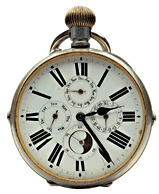


THE AUSTRIANS offered a viable alternative to the reigning Classical School of economics popularized by Adam Smith's The Wealth of Nations. In the classical view, value was an objective figure expressed through mathematical formulas. To the Austrians, however, value was determined by people and affected by time and place, and could never be objective.
Menger laid the groundwork for this theory in his Principles, but it was the next generation, figures like Eugen von Boehm-Bawerk and Friedrich von Wieser , that brought it to a wider audience. In explaining Menger's theory of value -- that only individual objects with a need or use by a specific person have value, versus goods in the general sense, which are valueless -- Wieser first applied the now-famous term "marginal utility."









